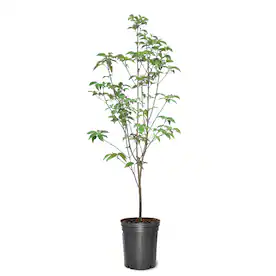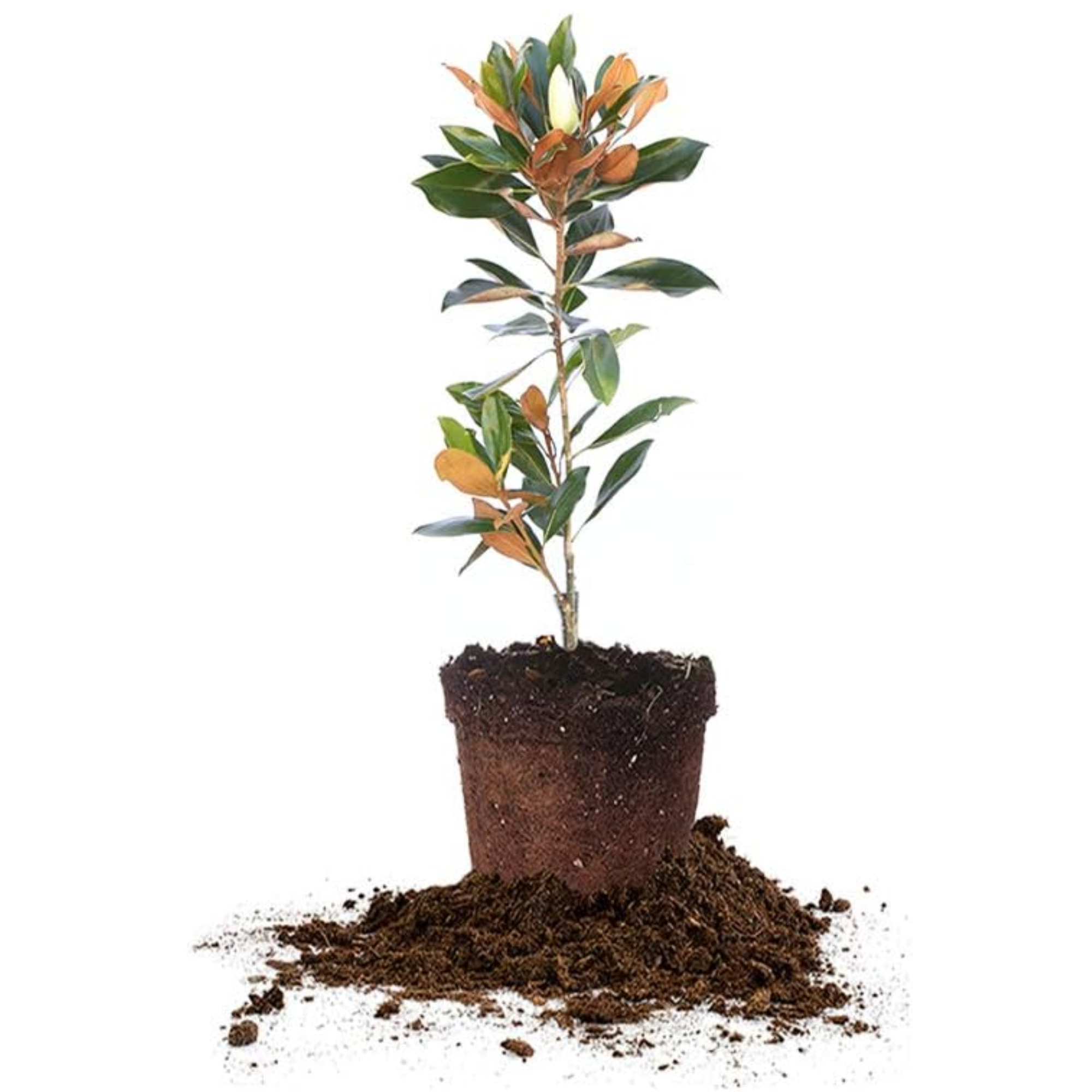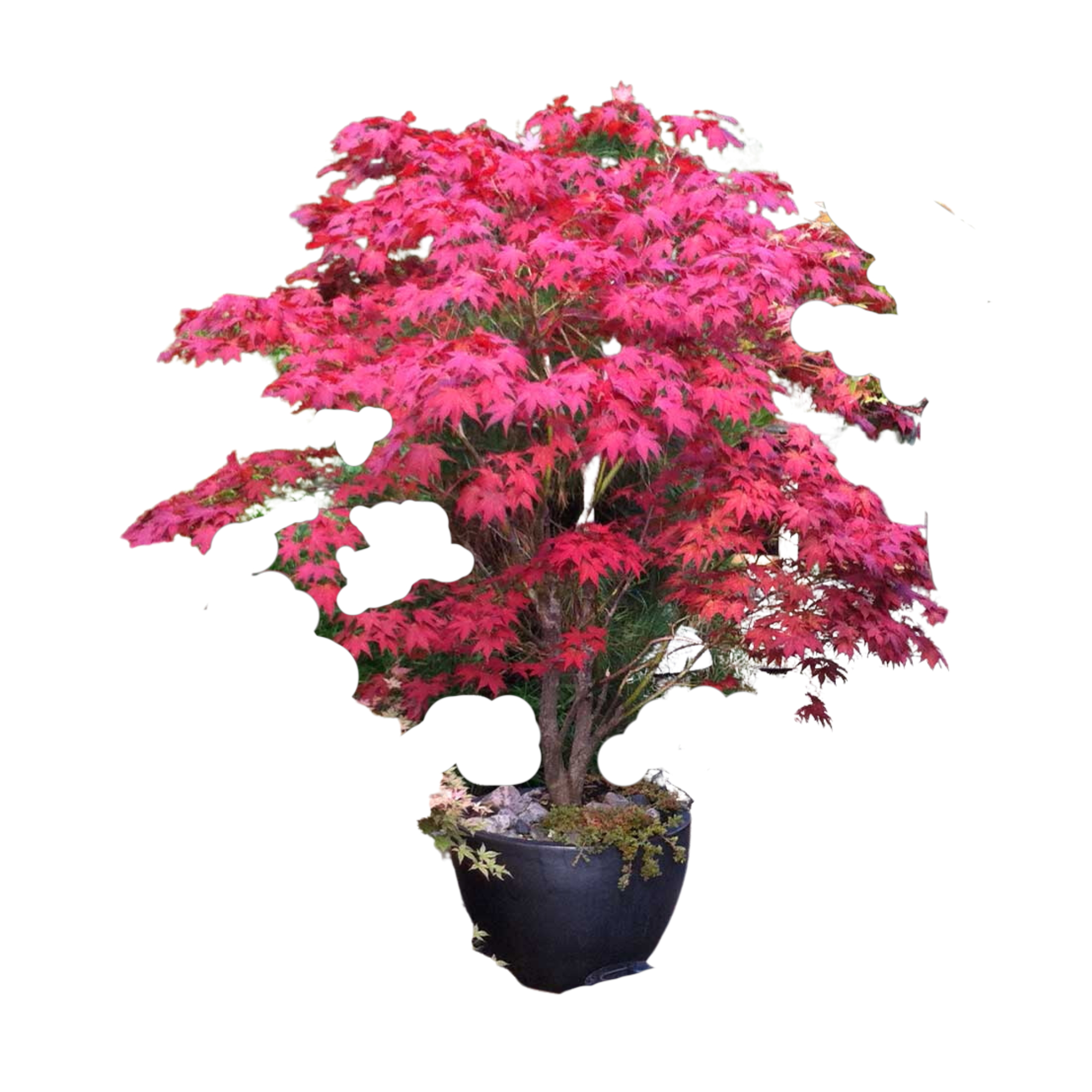5 of the best trees to plant near a house, and 5 of the worst that expert gardeners know to avoid
Planting a tree can be a great way to boost your home's curb appeal, but only if you know the best ones to choose

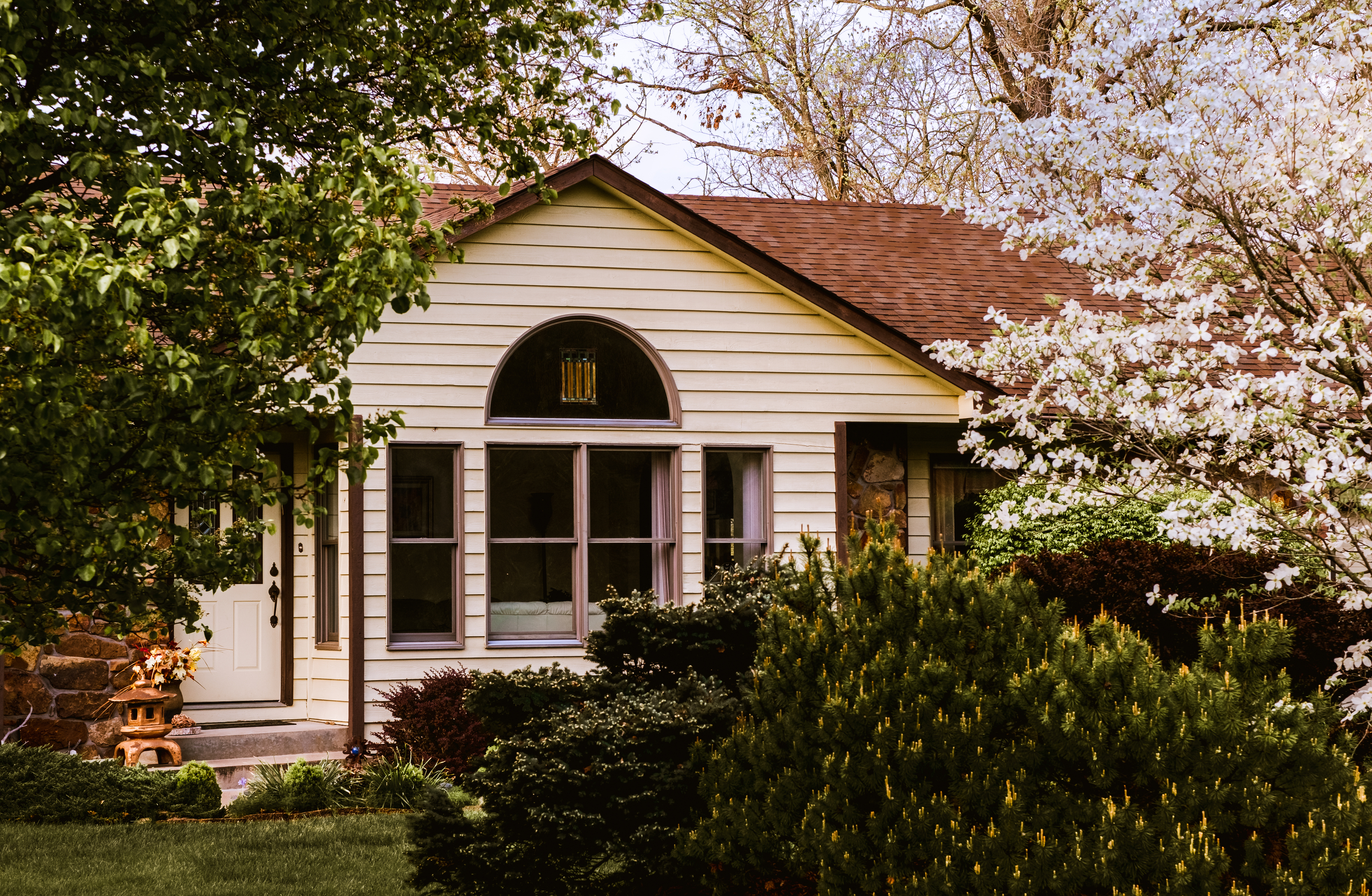
The Livingetc newsletters are your inside source for what’s shaping interiors now - and what’s next. Discover trend forecasts, smart style ideas, and curated shopping inspiration that brings design to life. Subscribe today and stay ahead of the curve.
You are now subscribed
Your newsletter sign-up was successful
If you're looking to brighten up a lackluster lawn or add some structural interest to your home's perimeter, planting a tree can be an excellent landscaping choice. But, while these glorious gifts of nature make a great aesthetic impression, not all of them have the same impact when it comes to curb appeal, plus there's also the question of practicality to keep in mind.
Trees are the kind of garden feature that stays with you for a long time, so you want to make sure you're choosing the right one. From huge root systems that can cause structural damage to your home to invasive species that produce messy fruits and thick branches that overshadow your space, there are a whole host of reasons why you want to avoid certain trees. Instead, you'll want smaller ornamental ones that won't be a burden to maintain, while also offering the best contribution from an aesthetic standpoint, too.
Need a helping hand deciding? We asked some gardening experts for their advice on the five best and worst trees to plant near a house for a landscaping idea that's both stylish and safe. Here's what they had to say.
Best trees for planting near a house
There are several things you want to consider when it comes to choosing the right tree to plant near your home. Of course, you want one that makes a pretty addition to your yard, so blossoming options or ornamental trees that show a spectrum of beautiful colored leaves are a great choice. You'll also want to ensure you're not choosing a fast-growing tree that's going to grow to an enormous height and overshadow your yard or pose a risk to your home's foundations.
Already, that's probably a bigger checklist than you imagined, right? You'll then have all your personal preferences to factor in on top of those, too. To help narrow down your options, here are five expert-approved trees for planting near a house.
1. Dogwood
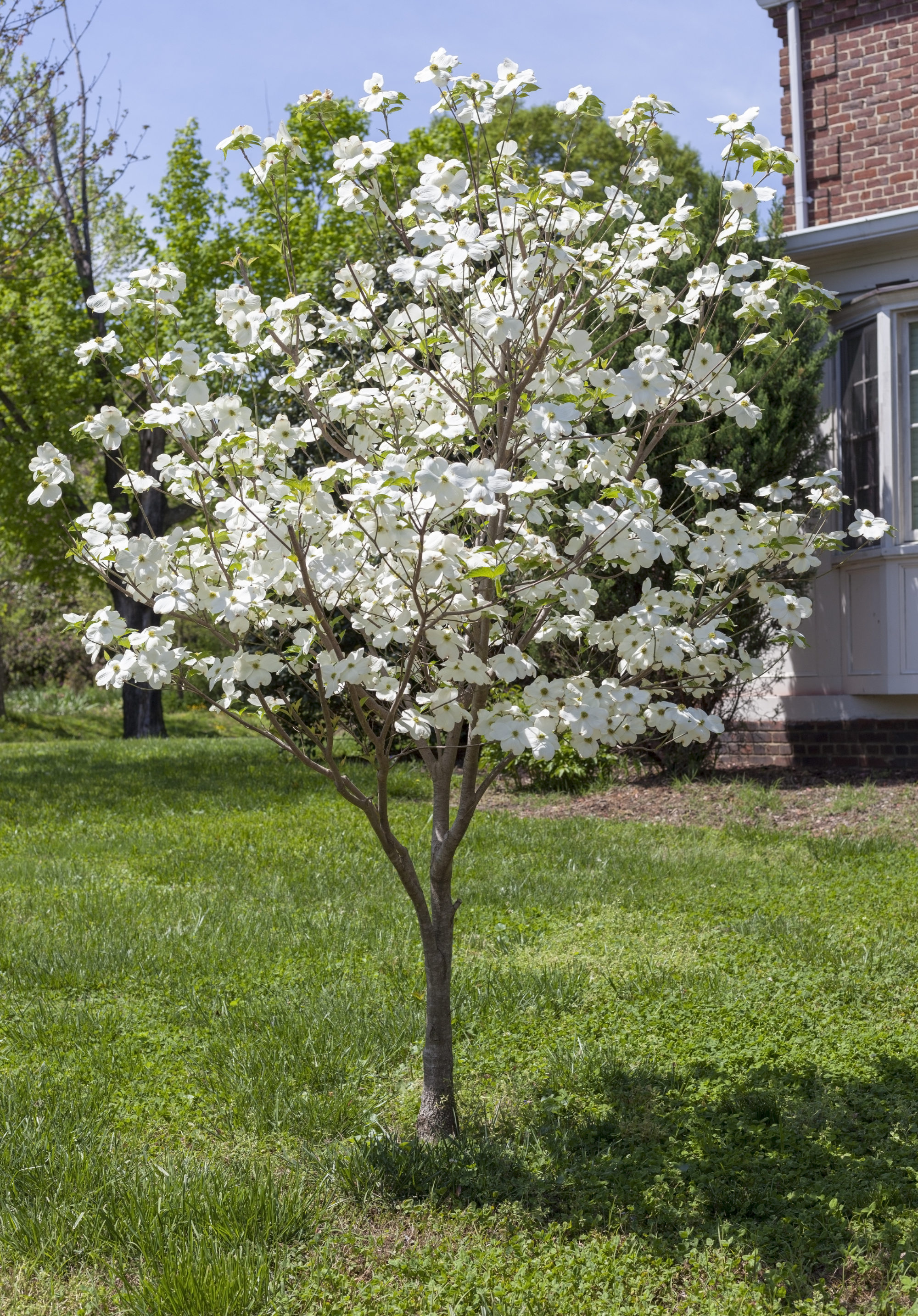
A great low-maintenance tree for a front yard, flowering dogwood has year-round appeal. 'This tree is native to the eastern United States and makes a perfect specimen tree in smaller woodland gardens and in front yards with dappled shade,' explains expert landscaper Jarema Osofsky of Dirt Queen NYC. 'Its white spring flowers, which are actually bracts, will dazzle your neighbors and shine brightly in the moonlight.'
Suitable for hardiness zones 5-9, this tree will transition through an array of foliage throughout the seasons adding great curb appeal to your home. As Chris Young, gardening expert and author of The Green Witch’s Guide to Magical Plants & Flowers, says: 'Dogwoods feature showy spring blooms and attractive foliage in various shades, from green foliage in summer right through to bright berries in the fall.'
The Livingetc newsletters are your inside source for what’s shaping interiors now - and what’s next. Discover trend forecasts, smart style ideas, and curated shopping inspiration that brings design to life. Subscribe today and stay ahead of the curve.
2. Japanese Maple
One of the best trees for small gardens, this beautiful ornamental plant adds color and calm to your outdoor space, and makes an especially good choice for a zen exterior inspired by a Japanese garden. 'Their vibrant colors and graceful appearance provide a sense of tranquility,' says Chris. 'Known for their stunning foliage and compact size, they offer shade without overwhelming the space.'
'With so many elegant varieties coming in many sizes and colors, ranging from red to orange to green, you are sure to find one that suits you and your garden,' adds Jarema. 'They thrive in containers and in shadier yards.' She's quick to point out, however, that the Acer palmatum variety is invasive in some parts of the US, so check with your local nursery before bringing it home.
3. Magnolia
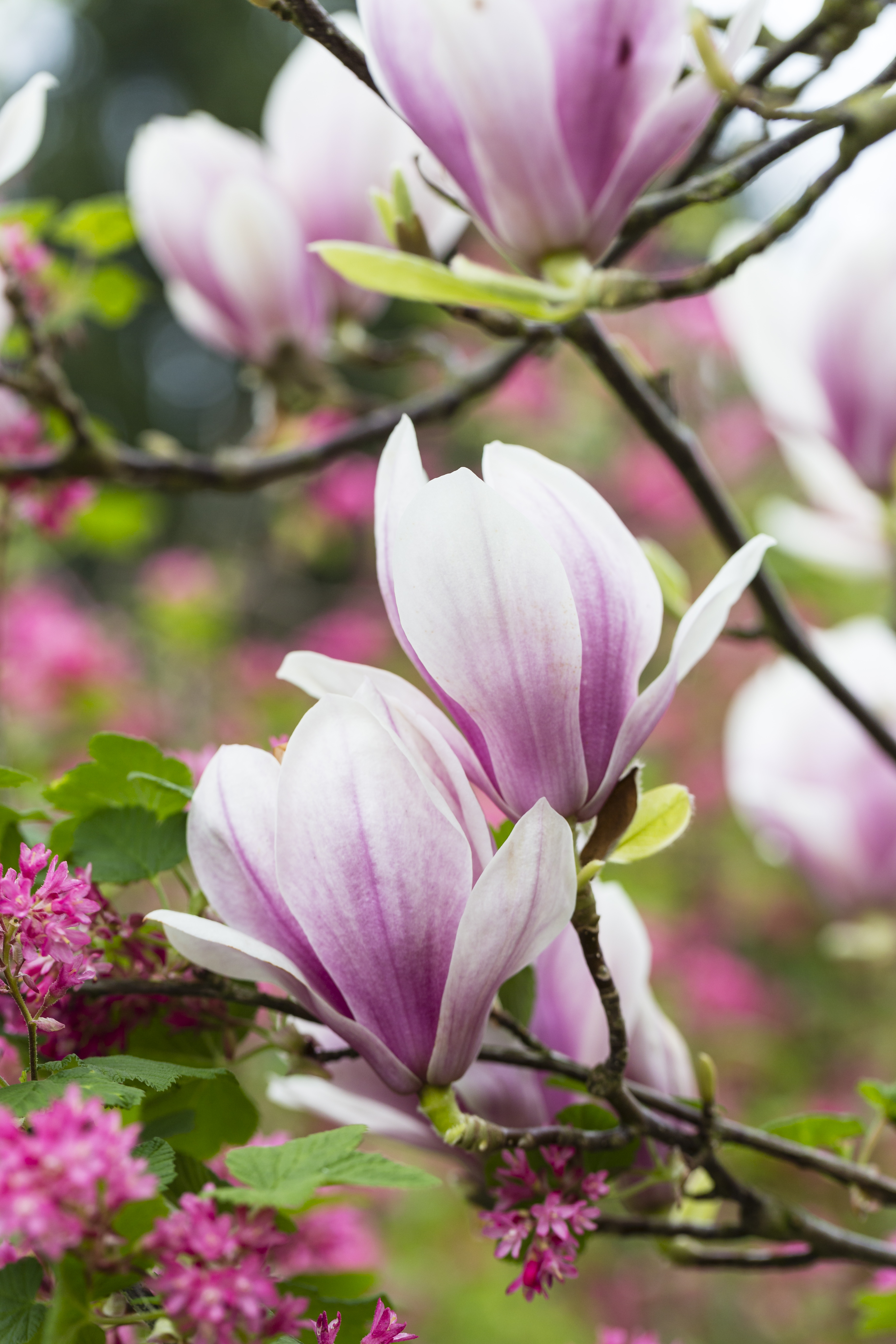
This elegant flowering tree is guaranteed to brighten up your front yard and it's a great choice for planting near a house because, despite its large spreading canopy, it has a shallow root system.
'Magnolias are evergreen and produce large, fragrant flowers,' notes Chris. 'They add beauty and fragrance to your landscape plus the sweet scent of magnolia blossoms can promote relaxation.'
While they thrive in Southern regions, magnolia trees are suitable for USDA hardiness zones 4-8 depending on the variety. As Chris notes, regular watering and protection from frost are essential.
4. Crepe Myrtle
'Crepe myrtles bring vibrant summer blooms in a variety of colors and sizes,' says Chris. 'They're hardy and require minimal maintenance, only requiring a prune in late winter to encourage growth.'
The crepe myrtle explodes in an abundance of blooms through summer, adding a pop of color to your backyard or front path. It's worth noting however that these pretty trees prefer full sun so if you're planting one near your property, make sure it's not totally shadowed by your home.
5. Eastern Redbud
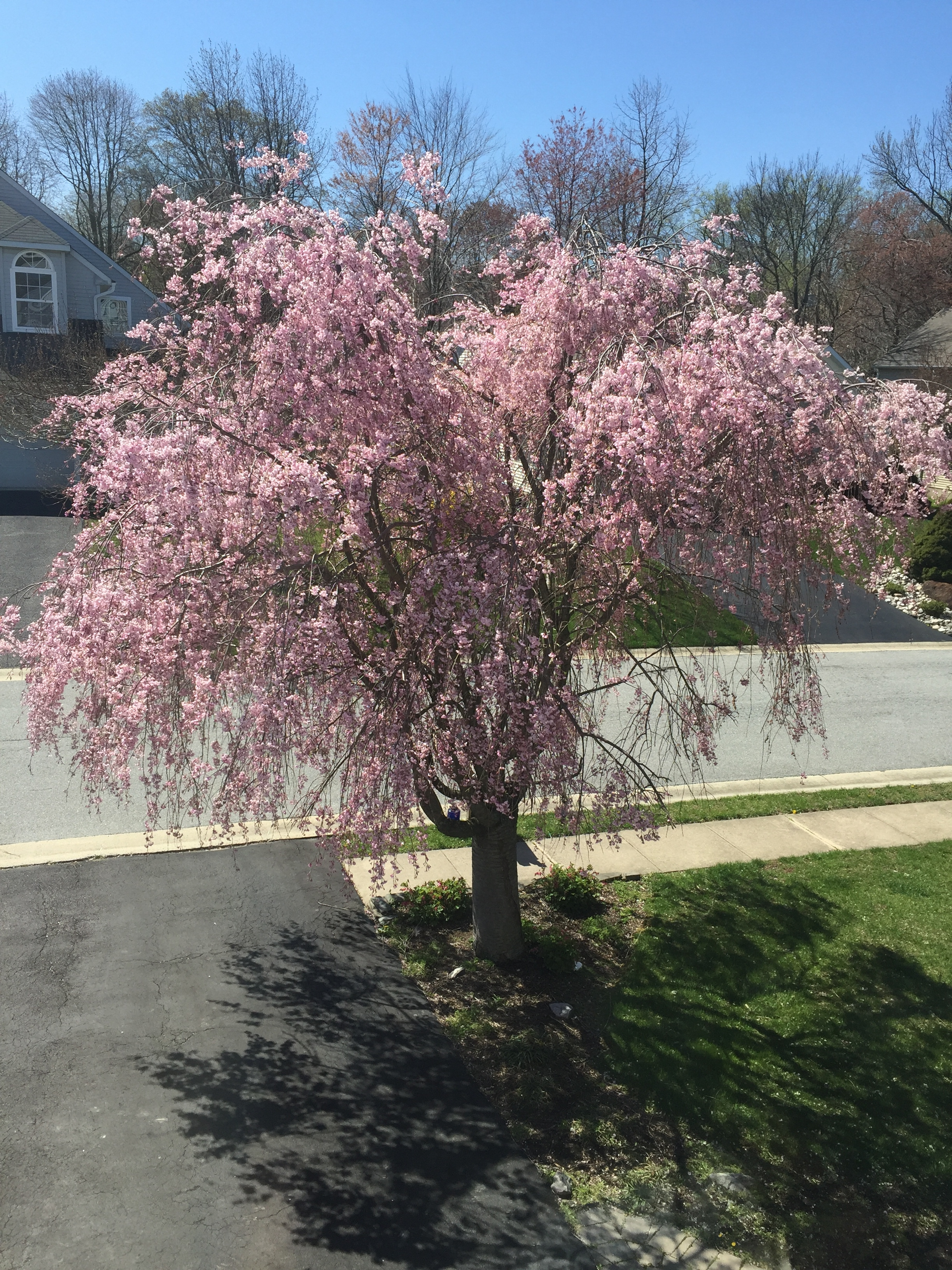
'Eastern Redbud is native to the eastern United States and is one of the first trees to bloom each spring, with striking rosy purple buds covering bare branches,' says Jarema. This small deciduous tree typically only grows up to 20 feet in height meaning it won't outgrow your front yard and tower over your property in ten years' time.
They make an incredibly decorative choice for your outdoor space thanks to their rounded shape. 'In summer, its attractive, heart-shaped foliage takes the stage,' Jarema adds. 'Redbuds are suitable for smaller yards in dappled shade, and if you're in a rural area, deer tend to ignore this tree.'
Worst trees for planting near a house
When it comes to which trees to avoid, your main concern will be size. Trees that grow too big or rely on large root systems can soon cause problems and they require a lot more maintenance as a result. 'When planting any tree, consider its size at maturity, proximity to the house, and local climate,' says Chris.
1. Mulberry tree
The first tree you'll want to steer clear of is the mulberry. 'There are some trees you just don’t want to park your car under, and this is one of them,' says Jarema. 'While their berries are delicious (when ripe) and also a feast for birds, they leave a big, old mess in your yard.'
2. Norway maple
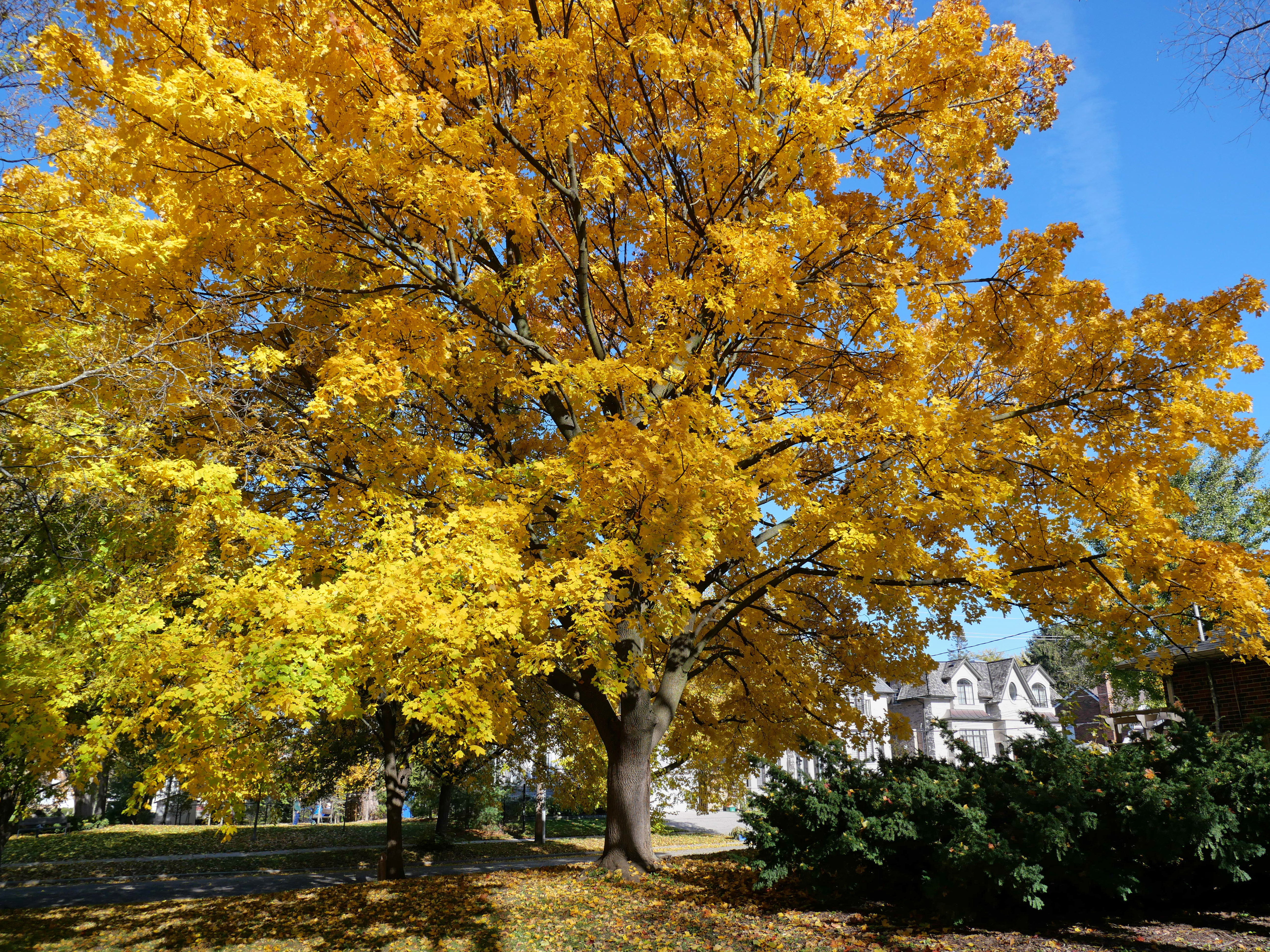
Norway maples are impressive beasts, but not the sort you want in your small backyard. 'This massive tree is invasive,' notes Jarema. 'Its root system will take over your yard and its canopy provides dense shade that will make you think every day is cloudy and also make it difficult to plant anything in its understory.'
3. Weeping willow
Structurally, weeping willows are quite the spectacle with their cascading tendrons of leaves, and while their mass of stems might make them a good privacy tree, their reliance on damp soil can cause a problem. 'This is because their invasive root system can damage foundations and drainage systems,' says Chris.
4. Mimosa tree
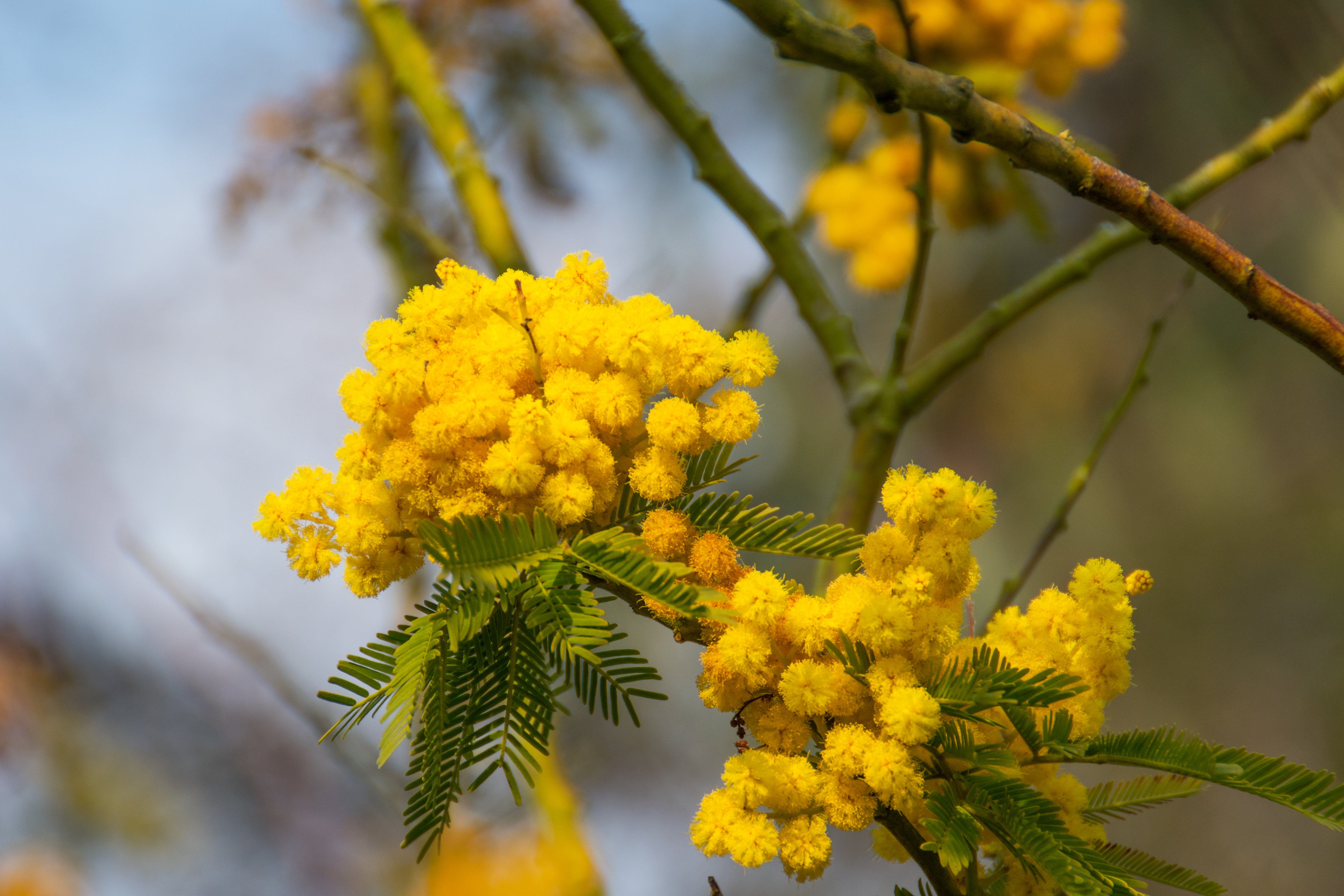
Originally from China, the mimosa tree has been a popular tree for landscaping thanks to its feathery yellow foliage, but it's best avoided for a variety of reasons. 'This tree is messy, invasive, and its seed pods are toxic to dogs,' Jarema says. 'Stay away from this beauty–she’s a beast!'
5. Leyland cypress
Last but not least, while the evergreen foliage of the Leyland cypress makes it one of the best privacy trees for bordering a yard, you won't want to plant in too close to your house. 'Leyland cypresses grow rapidly, becoming too large and close to structures, blocking light and airflow,' says Chris.

Lilith Hudson is a freelance writer and regular contributor to Livingetc. She holds an MA in Magazine Journalism from City, University of London, and has written for various titles including Homes & Gardens, House Beautiful, Advnture, the Saturday Times Magazine, Evening Standard, DJ Mag, Metro, and The Simple Things Magazine.
Prior to going freelance, Lilith was the News and Trends Editor at Livingetc. It was a role that helped her develop a keen eye for spotting all the latest micro-trends, interior hacks, and viral decor must-haves you need in your home. With a constant ear to the ground on the design scene, she's ahead of the curve when it comes to the latest color that's sweeping interiors or the hot new style to decorate our homes.
